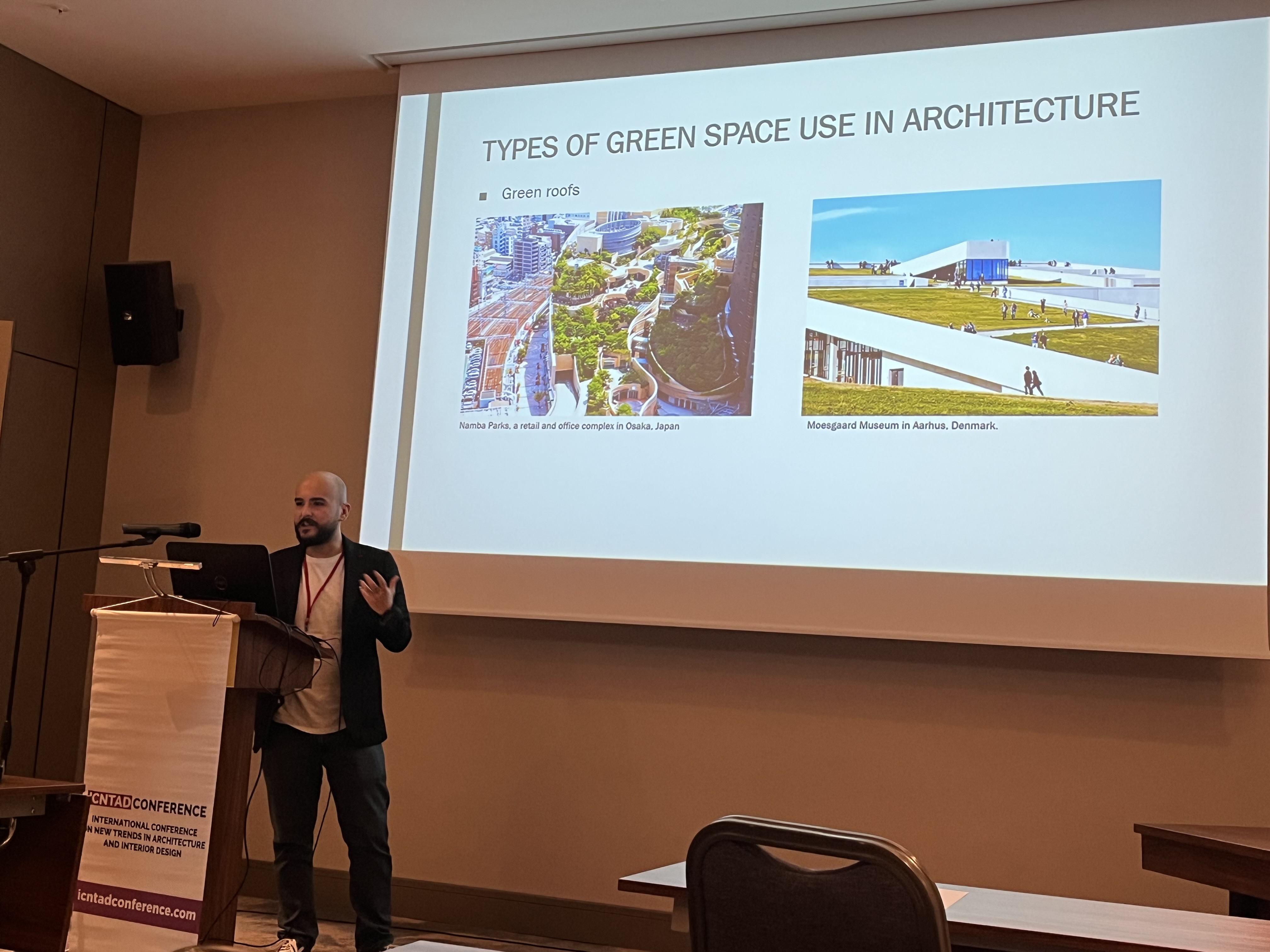Istanbul Gelisim University (IGU), Faculty of Fine Arts (FAF) Interior Architecture and Environmental Design Department Research Assistant Tuğçe Öztürk and Interior Architecture and Environmental Design (Eng.) Department Research Assistant Mustafa Dallı, at the “9th International Conference in Skopje, North Macedonia”. On New Trends in Architecture and Interior Design (9th ICNTAD'23)”, they presented their papers titled “Rethinking Open and Green Spaces in Architecture and Urban Realm After Covid-19 Pandemic: The Case of Istanbul”. Researchers from many different countries participated in the conference chaired by Prof. Dr. Burçin Cem Arabacıoğlu.
During the pandemic process, the importance of open and green spaces in architecture and urban areas was once again discussed.
Emphasizing that the impact of the global COVID-19 pandemic process on cities and urban life, and the inclusion of social distance in our lives, brought up the importance of open and green spaces in architecture and urban areas, Öztürk and Dallı stated that the time we spend in our homes and our immediate surroundings have increased with the pandemic process. Stating that this situation differentiates and diversifies our expectations from both our house and the region where our house is located, Öztürk and Dallı emphasized that open and green spaces that were not on our priority list before the pandemic and use that meet our outdoor needs such as gardens, terraces or at least balconies in homes gain much more importance. Therefore, Öztürk and Dallı stated that these needs started to cause changes in both residential architecture and city planning, and they used the following expressions for their study; “The study aims to compile the design criteria of architectural design and the increasing need
for open and green space in the urban area during the pandemic process and to present architectural and urban design examples applied in this direction.” At the conference, firstly examples from various cities of the world were presented and then the examples applied in Istanbul were presented and analyzed. As a result, Öztürk and Dallı emphasized that open and green spaces have many benefits such as a longer and healthier life, fewer mental health problems, and better cognitive function, and stated that the need for these benefits reached the highest level during the pandemic period. Öztürk and Dallı added that fact that one should always be prepared when the possibility of such global epidemics recurring is considered, and that the design criteria mentioned in the study should continue to be applied on an architectural and urban scale even if the pandemic process is over, and completed their paper presentations.
We congratulate Res. Asst. Tuğçe Öztürk and Res. Asst. Mustafa Dallı for their paper presentations and wish them continued success.





